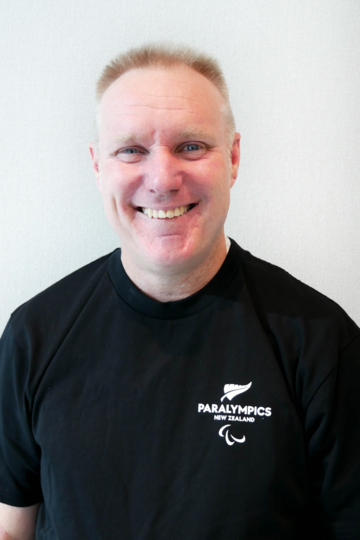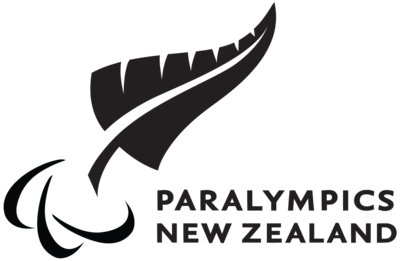NZ Paralympic Winter Legends: Rachael Henderson (Née Battersby)

From Paraylympics.org.nz
To whet the appetite ahead of the Milano Cortina 2026 Paralympic Winter Games we launch our series focused on New Zealand’s Paralympic Winter heroes with the journey to the top of the podium with Paralympian #114 Rachael Battersby.
On the slopes of the Slowbasin Resort, Rachael Battersby (now known by her married name of Henderson) achieved something no other Kiwi woman has ever achieved at a Paralympic Winter Games when securing a stunning three gold medal haul at Salt Lake City 2002.
Her glorious victories in the Women’s Downhill LW 3,4,6/8,9, Women’s Giant Slalom LW 6/8 and Women’s Slalom LW 6/8 helped elevate New Zealand to an outstanding tenth place finish on the overall medal table as Rachael and Paralympian #115 Steven Bayley delivered six podium finishes between them.
Her road to glory was not easy. In an earlier era for Para sport our Winter Paralympians were not given the same level of support as our current Paralympians.
“It was very different back then in that there was very little funding for winter Para sport,” explains the Cantabrian. “At home, I seemed to be constantly writing letters, appealing for funding and applying for grants. When I was racing, I rarely had a coach who travelled with me. I often inspected the course myself, tuned my own skis but I know that it made me a much stronger person – so independent and determined.
“I am incredibly proud of my achievements. I had the best support around me from family, friends and the community who all believed in me. That is what gave me the motivation to win.”
Born and raised in Christchurch, Rachael sustained a brachial plexus injury after falling from a moving car at the age of four – which left her left arm paralysed. The injury did not stop her competing in sport. She played basketball and netball at school and was fortunate from the age of six to be introduced to skiing on the slopes of Mt Hutt through Disabled Skiing Canterbury (now Adaptive Snowsports Canterbury).
“Skiing for me was such a happy, freeing place to be,” she explains. “I always felt so lucky to have the chance to ski. The organisation was very supportive, I loved my time skiing, improving my skills.”
Starting her competitive Para ski journey competing at the National Championships at the age of 14 she quickly earned selection for the national development team. Possessing a naturally determined demeanour she continued to progress. Three years later, Rachael enjoyed her first competitive international season. Based out of Winter Park, Colorado she was fortunate during that campaign to have the likes of Paralympian #55 Patrick Cooper, Paralympian #71 Kevin O’Sullivan, and Paralympian #85 Mathew Butson as mentors in her early career.
But perhaps of most significance on that maiden international trip was the decision to amputate her left arm.
“My left arm just hung to the side, and it was a coach, Danny Puffpaff, that said to me, ‘Why do you still have your arm, if you can’t do anything with it’?
“At that stage I was 18, I had spent a season competing overseas watching other Para skiers take off their arms and legs or leave their wheelchairs at the bottom of the hill, it seemed completely normal,” she adds. “Once I made the decision to have the arm amputated, I have never looked back. It definitely helped my skiing because my arm used to be braced to my body, but once it was gone it allowed for much easier body control.”
At the age of just 19, Rachael made her Paralympic debut at the Nagano 1998 Paralympic Winter Games. “Overwhelmed” by the experience she nonetheless loved every moment.
Rachael recorded a DNF in the Women’s Giant Slalom LW 3,4,5/7,6/8 and finished tenth in the Women’s Super-G LW 3,4,5/7,6/8.
While tuning her skis at the Olympic Village prior to her last race, she cut her hand which required ten stitches. However, she was determined to race the slalom (LW 3,4, 5/7, 6/8) but finished with a DNF result.
The results may not have been what she wanted but she learned much from the experience.
“To be around such high-level performers opened my eyes to see what was possible,” she says. “I remember leaving Nagano thinking I want to win in the future, and I am going to do everything in my power to get there.”
Approaching the sport with a laser focus and unable to financially commit to the sport beyond Salt Lake City 2002, she acknowledged she only had one more chance to achieve her Paralympic goals.
Boosted by her coach, Jane Stevens, who told Rachael’s mum over a glass of red wine “she had what it takes” to go far in the sport, she made rapid gains. More of a technical racer who preferred the slalom and giant slalom to the speed events by 2000 she was earning podium finishes on the international circuit.
However, during the 2000-01 season her preparations were badly impacted by a pair of tragic deaths. At her base at Winter Park a US team member died in a skiing accident and an Austrian volunteer with the training programme also died in a ski-related accident.
“The two tragedies really knocked my confidence,” she says. “I would have a good day followed by a bad day. I was on a real rollercoaster. It started to affect my results.”
Thankfully, help was at hand. Through the Sports Foundation she was given mental skills support. Visualisation became a tool to maintain focus and her mental resilience improved.
At this stage, Rachael continued to pay full price for all her own equipment, however, her coach – Jane Stevens – helped secure an affordable package through her business prior to Salt Lake City 2002. “I loved my Dynastar equipment, and I was ready for the season ahead (2001-2). I felt like a brick wall that was ready for anything that came my way. I was ready to win.”
Rachael led the World Cup circuit throughout the US and Europe for most of this season in Giant Slalom and Slalom. She finished the season at the World Cup Final in Canada prior to the start of Salt Lake 2002, and finished with a crystal World Cup Globe for overall winner in slalom, second in Giant Slalom, and third in Super G.
These results acted as further confirmation she was ready.
Opening with the Women’s Downhill LW 3,4, 6/8, 9 at Salt Lake City 2002, the least favourite of her events, she earned encouraging top three finishes in both training runs before using her mum as a source of inspiration to claim gold from American Csilla Kristof by more than three quarters of a second in 1:30.63.
“My mum has come all this way to watch me, so I thought, I can’t not compete because I am scared,” explains Rachael, who had previously feared the downhill. “On race day I was the last of the fast girls to come down the course. I still remember the course. The downhill is terrifying, but you just have to be strong and believe. In that race, I nailed it. I felt like I was on a strong railway track and was so strong. I skied the line I had trained, and I loved my skis. I thought I might place but was surprised to win gold because I wasn’t a downhill specialist. It just shows what can be achieved with belief and determination.
“After my win, I returned to the starting area when one of my coaches – Alan Bender – told me a story about the skis he had me on for the Downhill. The bindings belonged to Hal (our Austrian volunteer from our training programme in Winter Park who had died the previous season). He said to me ‘you took Hal on one hell of a ride Rach – he would be so proud of you’. It was a very emotional time.”
In the Women’s Super G LW 3,4, 6-8, 9 to follow she unfortunately lost focus after the race was delayed for 40 minutes because the skier ahead of her in the start order had suffered an oncourse interference. Rachael was “devastated” to place sixth before she bounced back to style to strike gold in both the Women’s Giant Slalom LW 6/8 and Women’s Slalom LW 6/8.
Dominating the former event from the outset she led after the first run, before delivering the goods in the second run to secure her second gold medal of the Games by seven tenths of a second from Kristof. Competing on a “steep pitch” and firm conditions, she faced a stronger examination in the slalom. Lying second after the first run she unleashed a stunning second run to take her third gold of Salt Lake 2002 by a margin of 1.3 seconds from her US rival.
“Technically I was not as strong as some of the other girls, but I just had so much hunger on the that second run,” recalls Rachael. “I was incredibly proud to win three gold medals.”
Despite her stunning accomplishments she arrived home in Canterbury to little fanfare. There was limited TV footage available of the Games and media coverage of her gold medal treble in New Zealand was also minimal.
Today, Rachael lives in Rangiora with her husband, and is mum to three kids – Ella, 14, Sophia, 13, and Ollie, 11. The 46-year-old keeps active by skiing, going to the gym daily, and works part-time at The New Zealand Spinal Trust. With aspirations to “give back” and help the disabled ski community in the future she reflects with pride on her short but brilliant international ski racing career.
“Life back then was tougher as a winter Para athlete, but it made me stronger, more determined, and hungrier to succeed,” she recalls. “To win three gold medals was a team effort. My Mum, friends and family, the community – they all enabled me to chase my dream. My results were a reflection on my commitment, my effort, my focus and my determination. I feel very lucky to have had the opportunity to represent New Zealand, travel the world making friends, and it made me become a confident, successful young lady.”
















































































































































































